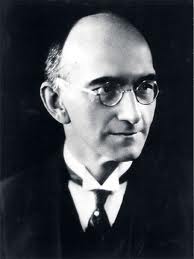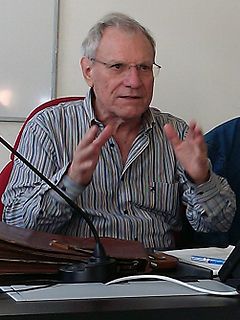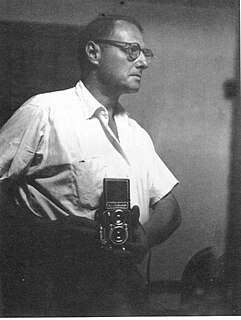 W
WJean Blondel is a French political scientist specialising in comparative politics. He is currently Emeritus Professor at the European University Institute in Florence, and visiting professor at the University of Siena. He lives in London.
 W
WShelton H. Davis was an American cultural anthropologist and activist for the rights of indigenous peoples. His academic and organizational work with Latin American indigenous communities contributed to the late 20th century public interest anthropology movement.
 W
WRuth Landes was an American cultural anthropologist best known for studies on Brazilian candomblé cults and her published study on the topic, City of Women (1947). Landes is recognized by some as a pioneer in the study of race and gender relations.
 W
WClaude Lévi-Strauss was a French anthropologist and ethnologist whose work was key in the development of the theories of structuralism and structural anthropology. He held the chair of Social Anthropology at the Collège de France between 1959 and 1982, was elected a member of the Académie française in 1973 and was a member of the School for Advanced Studies in the Social Sciences in Paris. He received numerous honors from universities and institutions throughout the world.
 W
WThomas E. Lovejoy, "the Godfather of Biodiversity", is President of the Amazon Biodiversity Center, a Senior Fellow at the United Nations Foundation and university professor in the Environmental Science and Policy department at George Mason University. Lovejoy was the World Bank's chief biodiversity advisor and the lead specialist for environment for Latin America and the Caribbean as well as senior advisor to the president of the United Nations Foundation. In 2008, he also was the first Biodiversity Chair of the H. John Heinz III Center for Science, Economics and the Environment to 2013. Previously he served as president of the Heinz Center since May 2002. Lovejoy introduced the term biological diversity to the scientific community in 1980. He formerly was chair of the Scientific Technical Advisory Panel (STAP) for the Global Environment Facility (GEF), the multibillion-dollar funding mechanism for developing countries in support of their obligations under international environmental conventions.
 W
WRichard Maurice Ledingham Mason was a British explorer and the last British person to have been killed by an uncontacted indigenous tribe.
 W
WBetty Jane Meggers was an American archaeologist best known for her work in South America. She was considered influential at the Smithsonian Institution, where she was long associated in research, and she wrote extensively about environmental determinism as a shaper of human cultures.
 W
WAlfred Métraux was a Swiss and Argentine anthropologist, ethnologist and human rights leader.
 W
WPierre Monbeig was a French geographer.
 W
WBenjamin Moser is an American writer and translator. For his biography of Susan Sontag, Sontag: Her Life and Work, he received the Pulitzer Prize.
 W
WCurt Unckel Nimuendajú was a German-Brazilian ethnologist, anthropologist, and writer. His works are fundamental for the understanding of the religion and cosmology of some native Brazilian Indians, especially the Guaraní people. He received the surname "Nimuendajú" from the Apapocuva subgroup of the Guaraní people, meaning "the one who made himself a home", one year after living among them. Upon taking Brazilian citizenship in 1922, he officially added the Nimuendajú as one of his surnames. On his obituary, his Brazilian-German colleague Herbert Baldus called him "perhaps the greatest Indianista of all time".
 W
WPaul Rivet was a French ethnologist; he founded the Musée de l'Homme in 1937. In his professional work, Rivet is known for his theory that South America was originally populated in part by migrants who sailed there from Australia and Melanesia. He married Mercedes Andrade Chiriboga, a woman born in Cuenca, Ecuador.
 W
WAntonius "Tony" Cornelis Gerardus Maria Robben is a Dutch cultural anthropologist and Professor Emeritus of Anthropology at Utrecht University, in the Netherlands.
 W
WPhilippe C. Schmitter is an American political scientist specializing in comparative politics. He is Emeritus Professor of the Department of Political and Social Sciences at the European University Institute.
 W
WThomas Elliot Skidmore was an American historian and scholar who specialized in Brazilian history.
 W
WPierre Edouard Leopold Verger, alias Fatumbi or Fátúmbí was a photographer, self-taught ethnographer, and babalawo who devoted most of his life to the study of the African diaspora — the slave trade, the African-based religions of the new world, and the resulting cultural and economical flows from and to Africa.
 W
WJean Ziegler is a Swiss former professor of sociology at the University of Geneva and the Sorbonne, Paris, and former vice-president of the Advisory Committee to the United Nations Human Rights Council. He was previously Member of the Swiss Parliament for the Social Democrats from 1981 to 1999. He has also held several positions with the United Nations, especially as Special Rapporteur on the Right to Food from 2000 to 2008, and as a member of the Advisory Committee of the UN Human Rights Council from 2008 to 2012. Ziegler has authored numerous works, is a lecturer, and is well known for this sentence: "A child who dies from hunger is a murdered child."